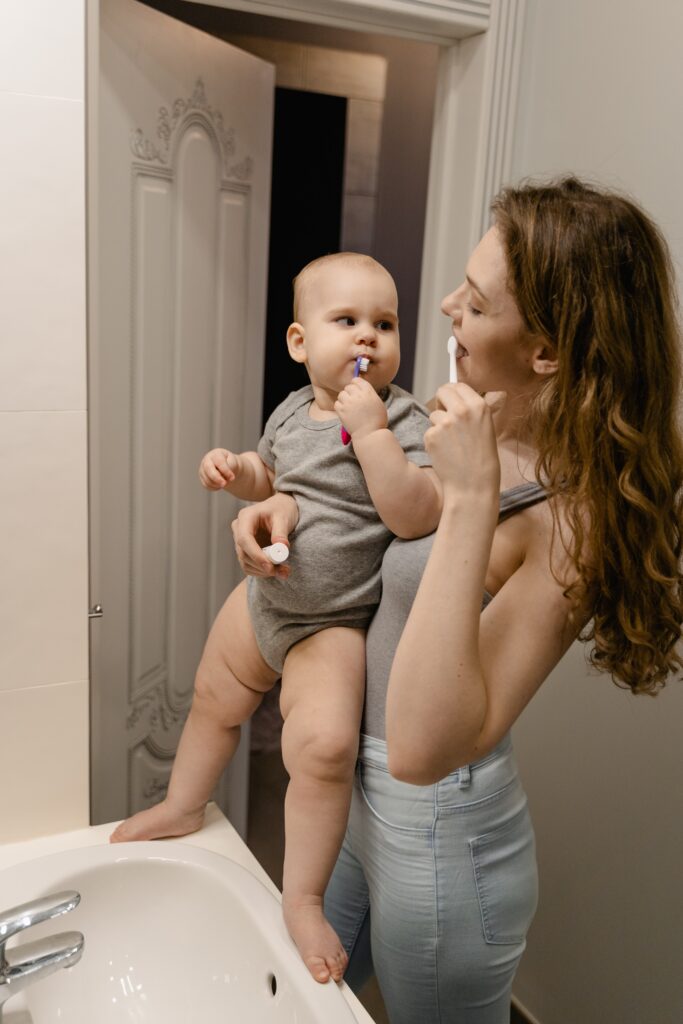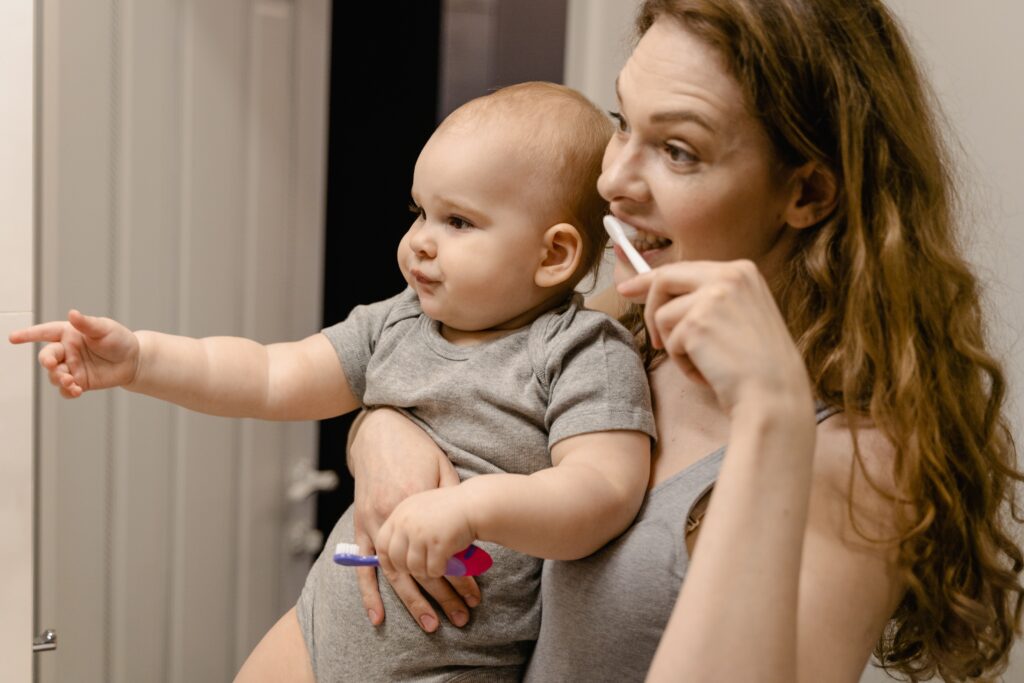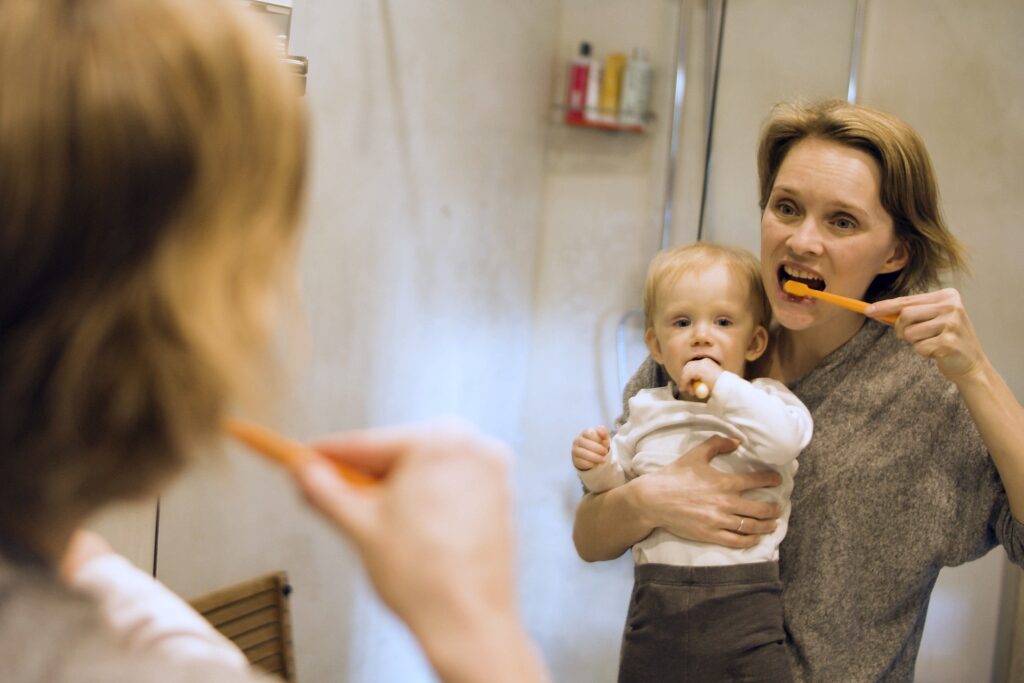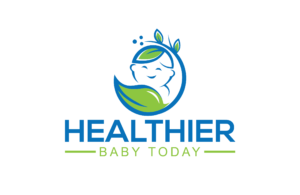Teeth Cleaner for Baby and Toddler with Healthier Baby Today! Good oral care for your infant begins the day they are born. Yes, even before the historical occurrence of a first tooth, when the mouth is filled with lovely pink gums. What you do now can result in your child having a healthy set of teeth and gums in maturity. Specific dental hygiene, food, and chemical elements might influence your child’s future appearance, speaking habits, and health from birth. We’ll tell you what to consider when caring for your baby’s dental health.
Baby Teeth Cleaner! Most people must understand that parents should start washing their baby’s mouth far earlier than they do. Tooth decay can be brought soon as your baby’s first tooth breaks through the gums. It is critical to incorporate appropriate dental care habits and teeth cleaners into your child’s daily routine from the beginning to ensure that their teeth and gums remain healthy. Here are some pointers on how to go about it. Baby tooth care has a direct impact on the health of permanent teeth. Although they serve only a transitory purpose, it is critical to thoroughly clean your baby’s teeth. It is vital to properly clean the baby’s teeth to avoid the creation of cavities and other dental disorders in children.
Parents are accountable for their children’s oral hygiene from birth and throughout the first years of their lives. But when should the initial teeth be cleaned?
When to Start Introducing Teeth Cleaners to Your Baby – Baby Teeth Cleaner

Baby Teeth Cleaner! Many parents need clarification on when to begin cleaning their children’s teeth and using teeth cleaners. A child’s first tooth usually appears around the age of six months. Is it necessary for parents to start brushing their teeth with a toothbrush and toothpaste at a young age? The quick answer is that they do. Plaque can build up on your child’s tooth surface as soon as they have a tooth, causing decay. Begin cleaning your child’s teeth as soon as their first teeth appear. But what if your infant refuses to let you into their mouth? What if your child flees at the sight of a toothbrush? Can you wait until your child is a little older and doesn’t mind cleaning their teeth much? The quick answer is that you should not hesitate.
Brushing a young child’s teeth can be difficult. Still, it is critical to establish and maintain a regular oral healthcare routine to keep your child’s mouth healthy and prevent potentially fatal infections. Just as you would not abandon changing your baby’s soiled diapers if your baby moved and made diaper changes unpleasant, you should never abandon keeping your child’s mouth clean and disease-free.
Different Types of Teeth Cleaners for Babies – Baby Teeth Cleaner

Oral care and using teeth cleaners for your baby might begin long before their first teeth develop. When your child is 3 months old, you can gently wipe their gum surfaces in the mornings and nights with a clean, moist pad, finger gauze, or cotton-gauze baby oral cleanser swabs. Gum care, particularly along the gum line where prominent teeth emerge, helps to keep gums clean and healthy. Examine the oral surfaces behind the lips, between the inner cheeks, and between the gums. You’d be shocked at what you can discover. Infant tongues, too, require cleaning with a baby tongue cleaner.
After you’ve finished cleaning, please give them a quick drink of water to wash away any lingering plaque and food residue in their mouth. Drinking plenty of water throughout the day also keeps their lips clean. When the first teeth appear, clean them with a soft, infant toothbrush or a silicone finger toothbrush and water. Your supermarket or drugstore will have a wide selection of age-appropriate developing teeth and gum cleaning products. If your child first resists using a toothbrush, make a slower transition and continue to wipe clean 100% of the surfaces of each individual tooth with a damp pad or gauze. Remember to include a song and games in their gum line. Your youngster will look forward to cleaning their teeth as part of their daily oral care and hygiene regimen.
Toddlers, like everyone else, need to get their teeth cleaned twice a day, in the morning and at night. And they will require your assistance and supervision while doing so. They will brush with a wet toothbrush until they are 18 months old and then brush with a dab of low-fluoride toothpaste. Concentrate on cleaning each tooth thoroughly, covering all surfaces. Because young children are unlikely to spit or rinse when instructed, gently wipe away excess toothpaste residue while leaving a slight smear on teeth for fluoride benefits. Around the age of two, your child should be able to grasp the brush in their hand and lead it in all of the proper brushing angles and motions. Place yourselves in front of the bathroom mirror so that you can both look inside their lips. For added stability, consider cupping their chin. Angle bristles to eliminate plaque from the front, rear, and between teeth. To remove plaque from the gum line, slant bristles towards the area and brush in an expanding circular motion to “shave” plaque off slowly. You are, in effect, acting as a puppeteer, guiding their movements as they hold the toothbrush.
Baby Teeth Cleaner!
To avoid irritation, ensure to ease the toothbrush off as it comes into contact with gum tissue. Allow your child to clean their tongues while you direct their hand movements and begin training them to spit. Once toddlers have mastered manual brushing, new dental technologies can be beneficial. Infant electric toothbrushes with timers are highly effective cleaning instruments, but they require a child to relearn their manual brushing method to utilize them. Electric toothbrushes are held steady and moved tooth by tooth across each tooth and are a great teeth cleaner. Always keep their toothbrush separate from other brushes and let it air dry. Cross-bacterial contamination with toothbrushes from older family members can introduce new bacterial species into your child’s oral cavity. Every 3-4 months, replace the brush or brush heads.
Tips to Make Teeth Cleaning Easier – Baby Teeth Cleaner

Baby Teeth Cleaner! Brushing those baby teeth with a fun angle will help prevent tears and tantrums. Here are a few game ideas to get you started:
- Create a fun atmosphere. Play peekaboo while brushing your teeth to brighten everyone’s mood, especially newborns and young toddlers.
- Brush in time with the music. Sing a favorite song or play music on your phone until the music stops and promote “crazy brushing.” Choose a piece about two minutes long and brush for the song’s duration. For extra laughter, use your toothbrush as a microphone.
- Time yourself. Set a timer or use your phone’s stopwatch to make brushing until the “finish line” a race against the clock. If she brushes until the buzzer sounds, she will receive a small incentive, such as a sticker or a different story at night.
- Include a toy. Set up your child’s favorite cuddly toy beside the sink and “brush” the doll’s teeth as she brushes her own. Inform her that the toy does not want to wash his teeth alone.
- Allow her to practice. Allow your child to brush her teeth on a beloved soft toy or on you. This may seem a bother, but it will teach her the motions she will want to repeat on herself later.
- Make her experience adulthood. Another strategy is to clean your teeth where and when your youngster does. When she can do something “grown-up” that mom or dad also does, she will be ready to join in because kids love to imitate adults. Brush your teeth thoroughly, including the tongue and the back teeth, to set an excellent example for others. Remember to appear excited about it, and show her your sparkling white teeth at the conclusion.
- Include the toothbrush in the game. Your child might like a toothbrush that plays music for a while, so she knows to keep brushing until the music stops, or one that lights up with a cheerful smiley face after two minutes of use.
- Reward brushing well. A chart that promotes dental brushing can pique your toddler’s interest. The best technique to motivate children is stickers for a job well done since they adore receiving prizes for excellent behavior. Consider implementing a system where each sticker won for brushing your teeth entitles you to an additional book at bedtime. If she keeps succeeding, you can give her the gift she’s been requesting as a more significant incentive.
Pearly Whites – Baby Teeth Cleaner
Baby Teeth Cleaner! There are many things to consider regarding your baby’s growth, but the first step toward instilling lifelong good oral hygiene practices in your child is to brush their teeth as soon as they erupt and choose effective teeth cleaners. After that, gradually educate her on how to brush her own baby teeth, and make sure she visits the dentist regularly. Making cleaning your teeth joyful and exciting from a young age will help these good habits remain.


